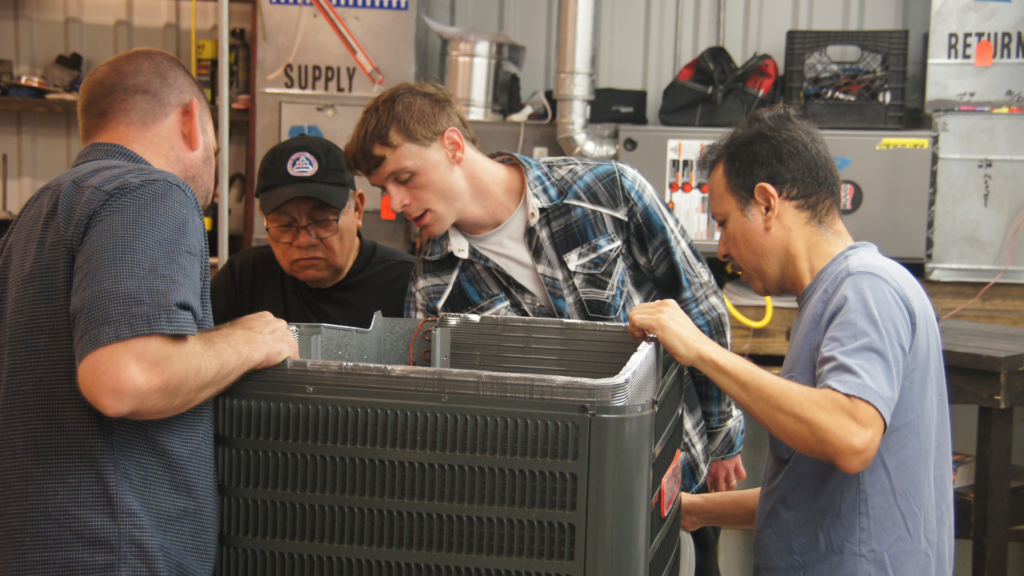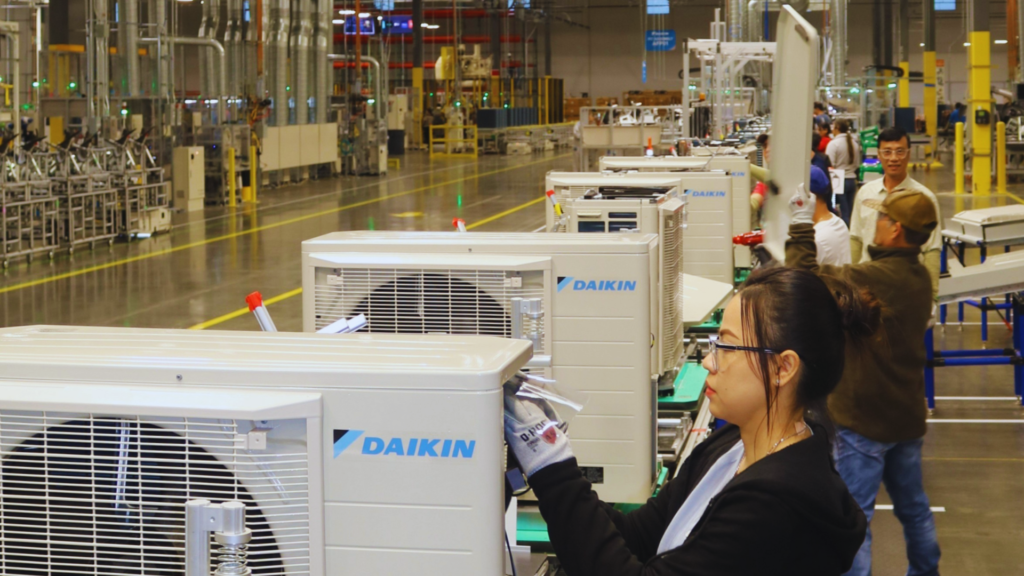House, Senate pass competing budgets: What’s at stake for contractors
Budget proposals from both chambers of Congress tee up several decisions that could impact contractors in the months ahead

Image: Axios
The House of Representatives last week passed its 2025 budget proposal in a step toward advancing President Trump’s agenda, teeing up several decisions that could impact contractors, including tax deductions and workforce funding.
The big picture: The proposal is part of the typical budgeting process, and serves as a roadmap for government committees to develop specific policies — it’s not an actual law.
- The House’s proposal differs from the Senate’s, which came days earlier, and both chambers will now reconcile their differences before sending a single bill to Trump’s desk.
What’s happening: Depending on final decisions, several elements in the proposal would have downstream effects on contractors. Here’s what to watch.
Tax Deductions
During Trump’s first term, Congress passed the Tax Cuts and Jobs Act (TCJA), which lowered the corporate income tax rate to 21 percent — and created a deduction, called ‘199A,’ enabling business owners to exclude up to 20 percent of their qualified earnings from federal income tax.
The House’s proposal authorizes the ‘Ways and Means Committee’ to increase the deficit by $4.5 trillion over the next decade, aimed at extending the TCJA, which is set to expire at the end of this year. “If extended, this would likely preserve the Section 199A deduction,” ACCA notes.
Separately, a bill with support from over 200 business groups has been reintroduced to make the deduction permanent.
HVAC Tax Credit
The Inflation Reduction Act, signed in 2022, extended a consumer tax credit, dubbed ‘Section 25C,’ allowing homeowners to claim up to $3,200 on their tax returns for installing heat pumps and certain air conditioners and furnaces through 2032.
As lawmakers work to extend the TCJA, Section 25C has been discussed as a potential ‘offset’ — meaning it could be eliminated to help pay for tax cuts elsewhere. However, the proposed $4.5 trillion deficit increase “may reduce the pressure for such offsets,” according to ACCA, which is watching the situation closely.
Workforce Funds
The House’s proposal directs the ‘Education and Workforce Committee’ to find over $300 billion in spending cuts, potentially affecting CTE funding, apprenticeships, and other workforce grants. While details remain unfinished, industry groups plan to advocate against any such cuts, with ACCA noting it will “oppose any potential reductions in workforce training investments in the skilled trades.”
Overtime Taxes
President Trump campaigned on eliminating taxes on overtime pay. While the budget proposal doesn’t specifically mention overtime, Jason Smith, chairman of the Ways and Means Committee, stated Wednesday that the no-tax-on-overtime issue “will be addressed in any tax package that we move forward,” aiming to deliver a final bill to Trump by Memorial Day.
Of note: The House’s proposal provides general direction rather than being a final policy — it’s the first step in the process.
- Only after the House and Senate reconcile their proposals will committees determine specifics that eventually become law.
What’s next: Lawmakers go on recess at the end of next week, and the Senate doesn’t plan to address the proposals’ differences until afterward, in late March, according to Politico.
📬 Get our stories in your inbox
Keep reading
U.S. vocational schools see second year of double-digit growth
Enrollment at public two-year schools with a “high vocational focus” grew 13.6 percent in Fall 2024, the second year of double-digit growth
Contractors spared as Treasury scraps ownership reporting rule
Certain contractors are no longer required to report their owners' personal information to the Treasury Department
AC, heat pump shipments rebound in 2024
Shipments of central air conditioners and heat pumps in 2024 grew 12 percent compared to 2023, according to AHRI data


